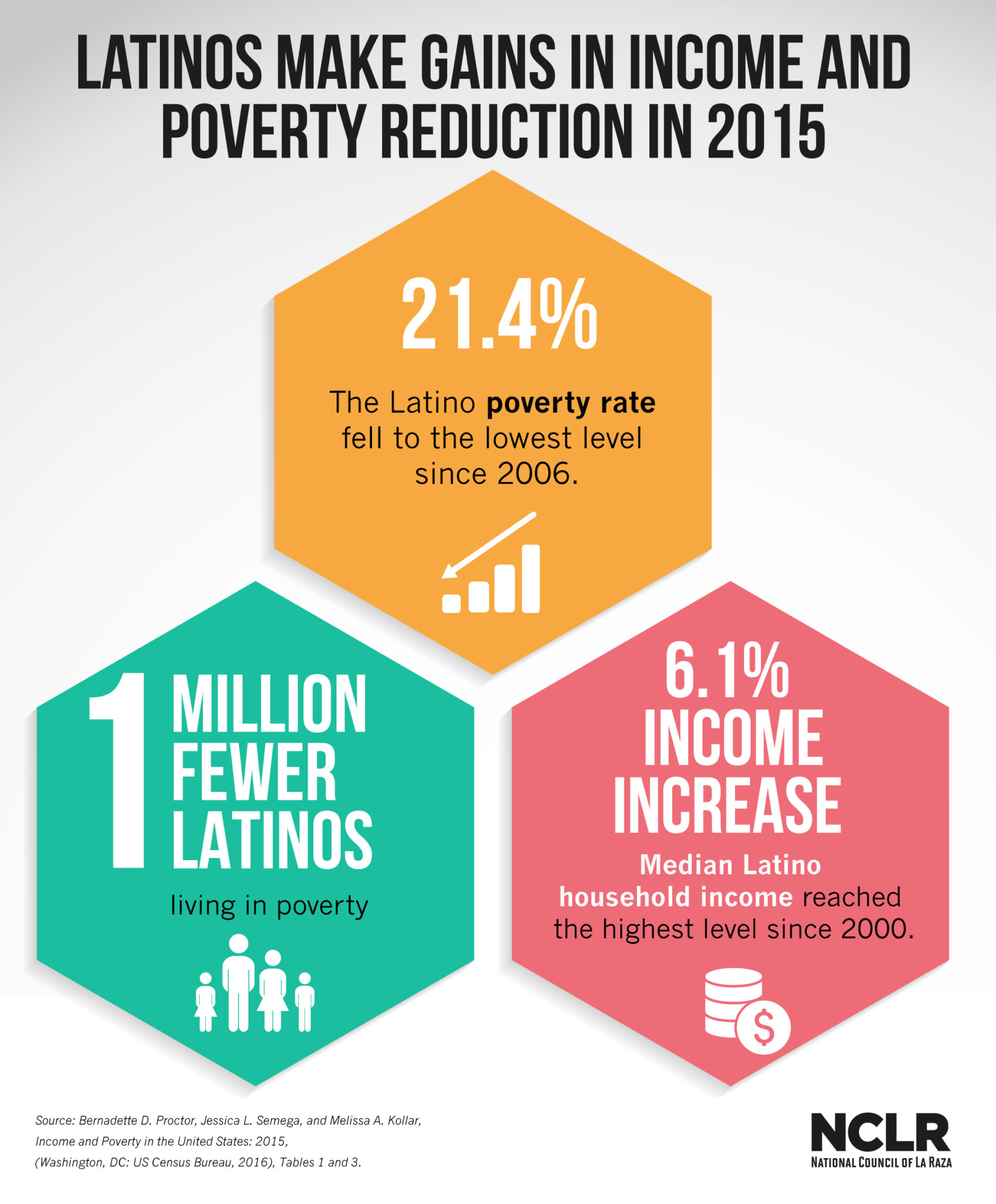Breaking Down the Census Data: Good News for Latinos But Not Enough to Close Gaps
By Yuqi Wang, Economic Policy Analyst, Economic Policy Project, NCLR

In 2015, Latinos were earning more, less likely to live in poverty, and more likely to have health insurance coverage than they did in 2014. This good news came from the recently released 2015 income and poverty data. A few bright spots in the data from the U.S. Census Bureau include:
Keep up with the latest from UnidosUS
Sign up for the weekly UnidosUS Action Network newsletter delivered every Thursday.
- The income of a typical Latino household income grew from $42,491 in 2014 to $45,148 in 2015. Latino households have not had this much money in their pockets since 2000 when median household income reached $45,649. This 6.1% jump from last year outpaced the 5.2% growth of the typical national household income
- There were one million fewer Latinos living in poverty in 2015. The percentage of Latinos living in poverty fell by 2.2% between 2014 and 2015 while the national poverty rate decreased by 1.2% during the same time.
- Latinos saw the highest increase of health coverage. Health coverage grew by 3.6% in 2015, the most growth out of any racial or ethnic group.
 NCLR highlighted these and other favorable gains for millions of Latinos in 2015 with a fact sheet summarizing the Census Bureau’s new data.
NCLR highlighted these and other favorable gains for millions of Latinos in 2015 with a fact sheet summarizing the Census Bureau’s new data.
These trends are evidence of the perseverance of the Latino community after years of slow growth.
“This progress is evidence that the hard work of Latino families, alongside commonsense policies that promote the Latino community’s long-term prosperity are working,” said Eric Rodriguez, Vice President of NCLR’s Office of Research, Advocacy, and Legislation.
Unfortunately, the work is not yet over. The Latino poverty rate remains distressingly high at 21.4 percent, more than double the national poverty rate of 10.4 percent, and is currently one of the highest of any racial or ethnic group.
This speaks to the urgency for commonsense policies that will address the needs of millions of Latinos who are struggling. Higher wages, increased access to safe financial products, and stronger Social Security and workplace retirement plans will positively affect the lives of millions of workers who have spent too long living paycheck to paycheck.
One potential commonsense policy reform is expanding the Earned Income Tax Credit (EITC). The EITC is an incredibly powerful tool in fighting poverty and it raised 6.7 million low-income working families above the poverty line in 2014. While it has been effective, the EITC could be expanded to benefit more low-wage and younger workers, including many Latinos.
Current EITC limitations for workers not raising children not only excludes many Latinos but actually taxes 1.7 million working Latinos into poverty. Fortunately, there are proposals from both sides of the aisle to expand the EITC to cover more workers, including up to 3.8 million Latino workers. NCLR, along with other state and national advocates, are working to expand the EITC and ensure more Latino workers see better returns for their hard work.
The fight to help the Latino community gain more solid economic footing is ongoing, but let’s not get discouraged by the work ahead of us. If the new Census data is any indication, Latinos are resilient despite years of hampered grow and lost wealth. The recent upward trends may be just the beginning.


